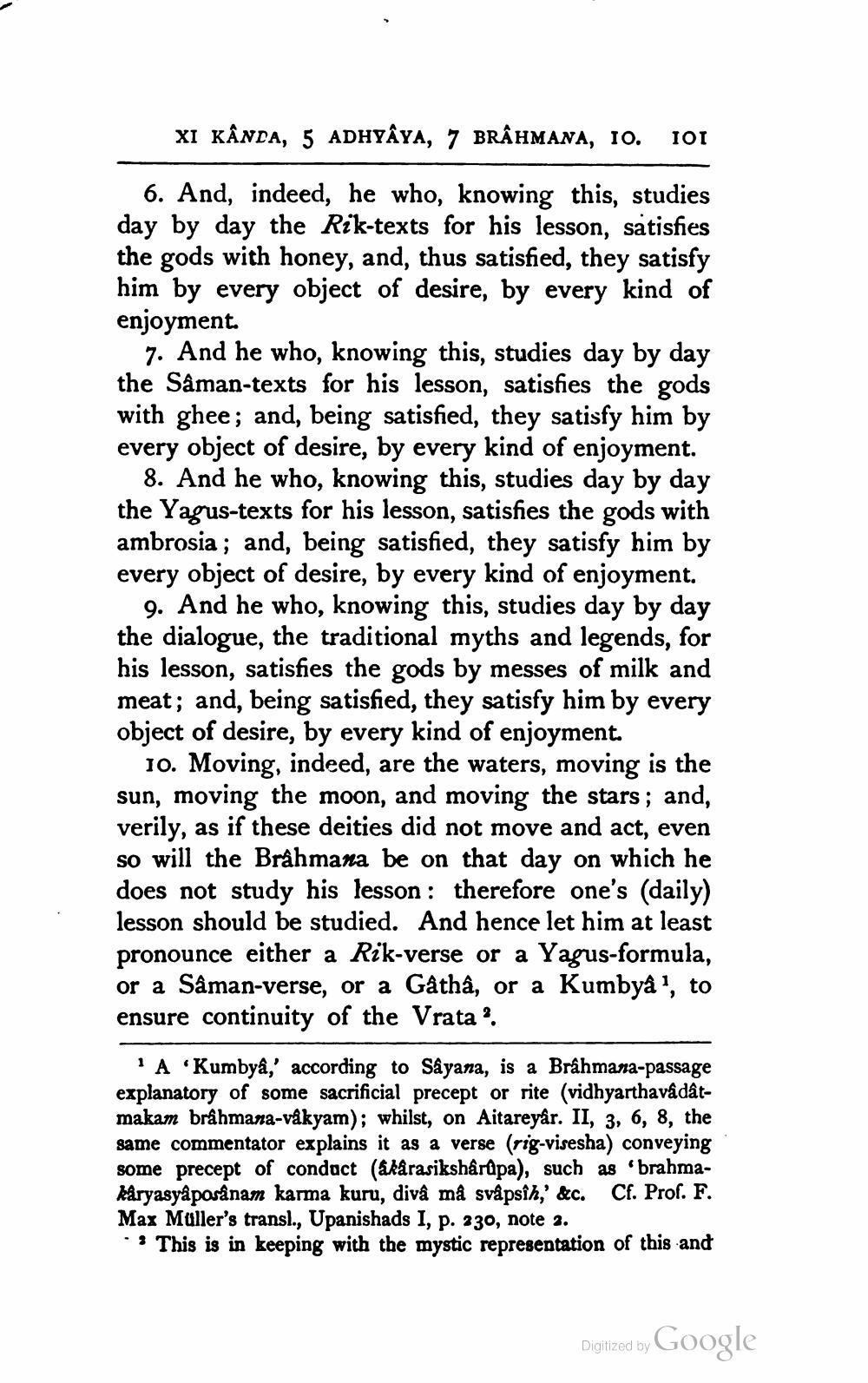________________
XI KÂNDA, 5 ADHYAYA, 7 BRÂHMANA, 10. 101
6. And, indeed, he who, knowing this, studies day by day the Rik-texts for his lesson, satisfies the gods with honey, and, thus satisfied, they satisfy him by every object of desire, by every kind of enjoyment.
7. And he who, knowing this, studies day by day the Sâman-texts for his lesson, satisfies the gods with ghee; and, being satisfied, they satisfy him by every object of desire, by every kind of enjoyment.
8. And he who, knowing this, studies day by day the Yagus-texts for his lesson, satisfies the gods with ambrosia ; and, being satisfied, they satisfy him by every object of desire, by every kind of enjoyment.
9. And he who, knowing this, studies day by day the dialogue, the traditional myths and legends, for his lesson, satisfies the gods by messes of milk and meat; and, being satisfied, they satisfy him by every object of desire, by every kind of enjoyment.
10. Moving, indeed, are the waters, moving is the sun, moving the moon, and moving the stars; and, verily, as if these deities did not move and act, even so will the Brâhmana be on that day on which he does not study his lesson: therefore one's (daily) lesson should be studied. And hence let him at least pronounce either a Rik-verse or a Yagus-formula, or a Sâman-verse, or a Gåthâ, or a Kumbya ?, to ensure continuity of the Vrata ?.
'A .Kumbyâ,' according to Sayana, is a Brâhmana-passage explanatory of some sacrificial precept or rite (vidhyarthavâdâtmakam brâhmana-vákyam); whilst, on Aitareyår. II, 3, 6, 8, the same commentator explains it as a verse (rig-visesha) conveying some precept of conduct (Skårasiksharpa), such as brahmakäryasyaposånam karma kuru, divâ må svåpsîh,' &c. Cf. Prof. F. Max Muller's transl., Upanishads I, p. 230, note 3. - ? This is in keeping with the mystic representation of this and
Digitized by Google




